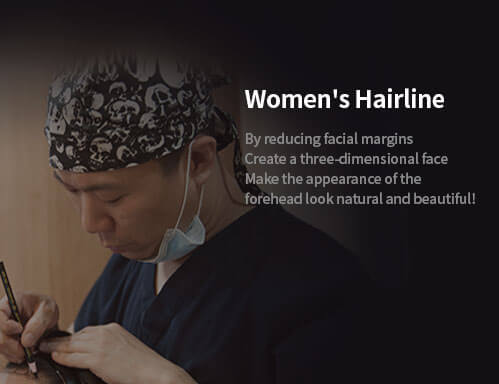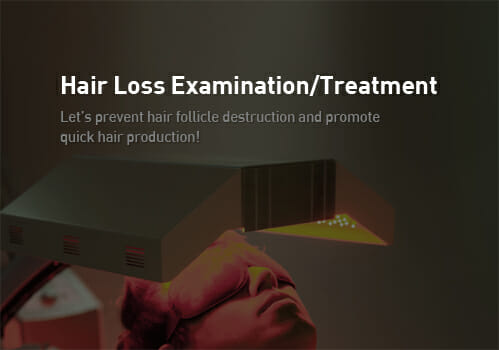Announcement
Stay informed with the various updates from New Hair
[Health Compass] Hair loss diagnosis by genetic testing?
Author
NEW HAIR
Date
2016-08-01 14:05
Views
209
Accurate diagnosis and treatment of’hair loss’ should be approached from a medical point of view.
Article registration date [August 01, 2016 10:08]
Written by Jin-oh Kim, President of NHI New Hair Clinic
Not long ago, through my blog, a young man in his late twenties inquired about the possibility of diagnosing hair loss through genetic testing. Both my grandfather and father suffered from hair loss, so I was worried that I would have hair loss, too, but I accidentally saw the news about hair loss screening through genetic testing.
If you can find out your risk of hair loss through this test, you will be tested as soon as possible, and if a result indicating that the risk is high, you will start management in advance to prevent hair loss.
There is a hot issue that has recently emerged among hair loss patients. It is a genetic test that can predict hair loss. As the Ministry of Health and Welfare allowed genetic testing by private companies in June, anyone can easily get genetic testing without going to the hospital. After requesting a genetic test through the Internet, put a cotton swab from the test kit into your mouth, collect oral epithelial cells, and send them to a company, so you can check your own hair loss inheritance and risk after about 4 weeks.
Among the types of hair loss, male pattern hair loss, which is the most common type of hair loss, is caused by inheritance and male hormones, and genes have a great influence on the expression of hair loss. Therefore, young men with family members suffering from hair loss, such as grandparents and fathers, are showing their will to prevent hair loss by confirming their own possibility of hair loss through genetic testing, even if hair loss has not yet progressed, and taking treatments in advance.
However, there is a high risk of misdiagnosis due to poor accuracy of this test. If the wrong diagnosis comes out, you may miss the treatment period even if it is hair loss, or you may be worried about uselessness even if it is not hair loss. In addition, hair loss is not caused by a single gene, but is caused by a combination of multiple genes.
Even with a hair loss-inducing gene, it is impossible to predict the time and progression of hair loss in advance, so treatment for prevention is practically impossible. Nevertheless, if you are concerned about hair loss, you should go to a hospital and get regular checkups rather than genetic testing. As male pattern hair loss is a progressive disease in which symptoms worsen once it starts, the treatment timing is very important, because it is possible to start treatment at an appropriate time if you consistently receive medical checkups.
Treatment for male pattern hair loss is largely divided into drug treatment and surgical treatment. Usually, in the initial stage, the efficacy and safety of the US FDA and the Korean Food and Drug Administration have been proven to be effective and effective only by eating and applying drugs. In particular, an edible drug that treats hair loss by blocking the process of conversion of testosterone to DHT has also proven effective in inhibiting hair loss of more than 90% and hair growth of more than 70% in clinical studies. The applied drug improves blood circulation in the scalp and promotes hair growth, and when used in combination with oral drugs, the therapeutic effect is even greater.
If hair loss has already progressed severely, it is recommended to try surgical treatment such as hair transplantation. Hair transplantation surgery involves collecting hair follicles from the back of the head and transplanting them to the hair loss area. Depending on the patient’s hair loss progression, it is performed using an appropriate method between incisional and non-incisional methods. The incision method has the advantage that hair follicles can be separated precisely because the scalp is cut to collect the hair. However, a thin, solid-line scar may remain after surgery.
Non-incisional hair transplantation minimizes scars and pain by collecting and transplanting hair follicles one by one without incision, and quick recovery is possible. Hair loss may no longer progress in the hair that has been transplanted once, but additional hair loss may occur in the surrounding hair. Eating and applying medications should be continued even after surgery.
As the genetic testing market expands, several companies are reporting that it is possible to check whether hair loss is inherited, but there is no genetic testing method in the world that can predict the expression and progression of hair loss. As there is a saying that ‘to catch bedbugs and burn them for a long time’, you may miss the time of treatment by trusting only the hair loss genes, or you may spend wasteful money on unnecessary treatment or management.
The only way to prevent hair loss is through regular medical checkups and early treatment. If you keep this in mind and keep in mind, I think there will be no more worrying about your straight hair.
By Song Byung-ki, reporter songbk@kukinews.com
Go to the original article> http://www.kukinews.com/news/article.html?no=386345

















